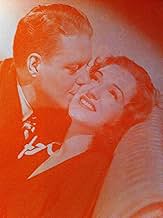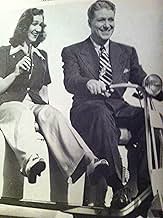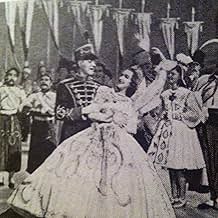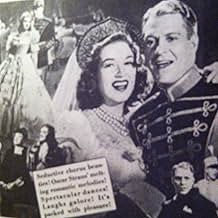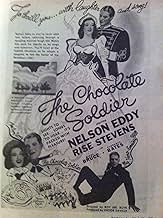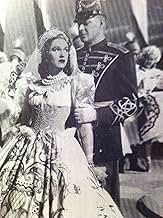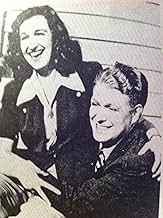Ajouter une intrigue dans votre langueMaria and Karl Lang are the singing duo of Vienna. Maria is very flirtatious and Karl very jealous. Karl decides to masquerade as a Russian guardsman and attempts to make Maria flirt with hi... Tout lireMaria and Karl Lang are the singing duo of Vienna. Maria is very flirtatious and Karl very jealous. Karl decides to masquerade as a Russian guardsman and attempts to make Maria flirt with him - to test her loyalty to him. As the Russian, Karl makes a vigorous attempt to seduce Ma... Tout lireMaria and Karl Lang are the singing duo of Vienna. Maria is very flirtatious and Karl very jealous. Karl decides to masquerade as a Russian guardsman and attempts to make Maria flirt with him - to test her loyalty to him. As the Russian, Karl makes a vigorous attempt to seduce Maria. For a moment she accepts then rejects him. Karl is left in turmoil.
- Réalisation
- Scénario
- Casting principal
- Nommé pour 3 Oscars
- 3 victoires et 3 nominations au total
- Magda
- (as Dorothy Gilmore)
- Undetermined Secondary Role
- (non crédité)
- Singer - 'Seek the Spy' Sequence
- (non crédité)
- Emile, Voice Coach
- (non crédité)
- Waiter at the Double Eagle
- (non crédité)
- Messenger with Note
- (non crédité)
- Performer in Gypsy Café Sequence
- (non crédité)
- Stage Manager
- (non crédité)
- Flute Player
- (non crédité)
Avis à la une
I will agree that the story about a man suspecting his wife of infidelity is predictable and creaks with age, and the choreography at times was disappointingly unexciting and pedestrian. But putting these flaws aside, this is a truly beautiful and entertaining film. One thing for certain, the production values were simply fabulous. The lavish costumes and beautiful sets were really a wonder to look at. The score is phenomenal, featuring some Oscar Strauss hits like My Hero, Thank the Lord the War is Over, Sympathy and of course the Chocolate Soldier, and some well known opera gems like Mon Couer s'oeuvre a Ta voix from Saint Saens's Samson and Delilah and Evening Star from Wagner's Tannhauser. While my Lady Sleeps was stunning too, but the real highlight was the enormously entertaining Song of the Flea. The performances were sublime; while the beautiful Rise Stevens is probably at her loveliest and sings beautifully, it is the wonderful undervalued Nelson Eddy who steals the show with his beautiful resonant voice and flawless comic timing and stage presence. Nigel Bruce and Florence Bates are good too.
All in all, a beautiful film. Not perfect, but the production values, score and performances make it a treat. 8/10 Bethany Cox
Dreadful choreography in the musical numbers, but beautiful Oscar Strauss music performed masterfully by Eddy and Rise Stevens, plus `Evening Star' from TANNHAUSER sung gorgeously by Eddy and `My Heart at Thy Sweet Voice' from SAMSON AND DELILAH by Stevens. Even though Stevens has the superior voice, one can't help wishing that Jeanette MacDonald, with her considerable comic gifts, had been available for the part!
Le saviez-vous
- AnecdotesThis has interesting origins from musical and non-musical plays. In 1909, the operetta "The Chocolate Soldier" opened in New York. This was based on the non-musical play "Arms and the Man" by George Bernard Shaw. However, Shaw voiced objections to his play being adapted as an operetta. A silent film adaptation, The Chocolate Soldier (1914), based on the New York operetta, omitted any reference to George Bernard Shaw. In 1911, a Hungarian non-musical play "Testör" ("The Guardsman") by Ferenc Molnár, opened in Budapest. In 1941 when this film was made, George Bernard Shaw was still alive. Therefore, the music of the New York operetta and the plot of the Hungarian non-musical play "The Guardsman" were used.
- GaffesWhen Eddy is impersonating a Russian singer, the nightclub impresario introduces him as a bass, but then Eddy sings. He is a baritone.
- ConnexionsFeatured in We Must Have Music (1941)
- Bandes originalesMy Hero
(1909) (uncredited)
Music by Oscar Straus
Musical adaptation by Bronislau Kaper and Herbert Stothart (1941)
Original lyrics by Rudolph Bernauer and Leopold Jacobson
English lyrics by Hugh Stanislaus Stange (as Stanislaus Stange)
Additional lyrics by Gus Kahn (1941)
Sung by Risë Stevens and Nelson Eddy in the show
Hummed a cappella by Florence Bates
Sung by Risë Stevens in the Gypsy Café
Reprised by Risë Stevens and Nelson Eddy in the show at the end
Meilleurs choix
Détails
- Durée1 heure 42 minutes
- Couleur
- Rapport de forme
- 1.37 : 1
Contribuer à cette page


